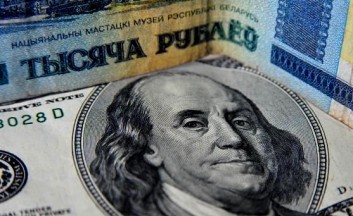Belarus’ Currency Market in 2012: from Optimism to Pessimism
 The situation has not changed
The situation has not changed

On January 11, the National Bank published foreign currency sales and purchases for the domestic market in 2012.
Comment
In the first half of the year, private and legal entities helped the National Bank to enlarge gold and currency reserves and make payments of foreign and domestic obligations. A sharp increase in people’s income and termination of trade schemes with dissolvents resulted in the purchase of foreign currency by private bodies and legal entities in the second half of 2012, with the trend continuing into 2013. To maintain currency exchange rate in 2013, it will be required either to make external borrowings, to sell major state assets or to invent new schemes for making profit from special economic relations with Russia.
The first half of 2012 is characterized by the net purchase of currency by the National Bank. Currency inflows from legal entities due to a positive balance of foreign trade in goods and services provided a net sale of foreign currency in the amount of USD 1 259 million. Due to the devaluation of 2011 and a decline in income, private bodies could not buy foreign currency in large amounts. An additional factor which provided the net sale of foreign currency by the population was high interest rates on deposits in Belarusian rubles. The net sale of foreign currency by the population accounted for USD 853 million.
In the second half of the year, after termination of “dissolvents” trade schemes with Russian petroleum products, legal entities significantly reduced net foreign currency bid, acting only as net buyers in August and September. Another negative factor was the notable decrease in sales of potash fertilizers on the foreign market. A rapid growth of people’s income in dollar equivalent resulted in demand for cash foreign currency. At the same time, people were actively buying non-cash currency. According to the results of the year, the population net purchase of non-cash currency amounted to USD 842 million.
In the fourth quarter of 2012, the balance of foreign trade in goods and services reduced, which led to a rise in devaluation expectations among private and legal entities. A series of measures taken by the National Bank, such as tighter reserve requirements, helped to reduce pressure on the currency market. Without these measures, the balance of net purchase of foreign currency in all sectors of the economy could have increased.
Therefore, the National Bank has almost lost a source for maintaining the gold and currency reserves at the achieved level of USD 8 million. Private bodies have partly reduced pressure on the foreign currency market. However, a growth in people’s incomes will enable them to keep the trend of net purchase of foreign currency. Under such conditions, and taking into consideration the obligations to make large payments of the state’s foreign debt, it is very important to find external sources to refinance the foreign debt. Without external borrowing, it seems quite problematic to keep foreign currency exchange rate within the limits set for 2013.
Subscribe to our newsletter




Situation in Belarus
Constitutional referendum: main consequences


 Video
Video
How to count the political prisoners: are the new criteria needed?


 Video
Video
Paternalism In Decline, Belarusian Euroscepticism, And The Influence Of Russia


 Video
Video












